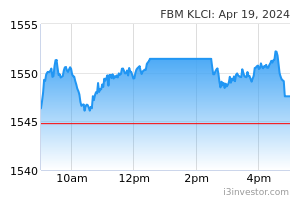RSPO suspends certification bids for FGV's non-certified units

KUALA LUMPUR (Jan 15): The Roundtable on Sustainable Palm Oil (RSPO)'s complaints panel has suspended principles and criteria (P&C) certification processes for all of FGV Holdings Bhd's uncertified units, while re-imposing its suspension of FGV's mill unit Kilang Sawit Serting.
In a statement yesterday, the non-profit sustainable palm oil body said its complaints panel had reviewed six audit reports on the FGV units and found the results to be unsatisfactory. Consequently, the panel has moved to suspend again Kilang Sawit Serting's P&C certificate and halted all certification processes on FGV's uncertified units, effective Jan 13.
This also entails the monitoring of FGV's currently certified units from Jan 13 till July 31.
In a letter to FGV dated Jan 13, communicating the decision, RSPO complaints panel chairperson Datuk Henry Barlow said FGV had failed to comply with the RSPO's rules on issues such as the treatment of labour, after the complaints panel reviewed six audit reports on the matter.
In particular, the panel found that the planter's foreign workers were not adequately briefed over their future working conditions in FGV, and that FGV continues the practice of signing contracts with these foreign workers in Malaysia, instead of in their respective countries of origin.
Furthermore, despite new policies and practices instituted by FGV after January 2019, the group still failed to ensure that newly hired foreign workers do not pay their recruitment agents unnecessary recruitment fees prior to joining FGV, and that even after October 2019, FGV has yet to fully phase out the use of contractors in Sabah.
Moreover, the panel found that FGV failed to provide evidence to support the claim that the planter was monitoring contract workers to ensure that the pay and working conditions meet the requirements of local labour laws.
In addition, FGV still employs roughly 7,000 workers in Sabah who have not been legalised yet.
"The above suspensions are effective from Jan 13, 2020. This complaint will continue to be monitored by the Investigation and Monitoring Unit (IMU). FGV is to continue submitting quarterly reports and updates related to the completion of this exercise to the Secretariat," stated Barlow.
He added that in order to lift the suspensions, FGV has to demonstrate via audits by certification bodies - at its own cost - that it has met the criteria do so by no later than July 2020.
Over the issue of undocumented workers in Sabah, the complaints panel is directing FGV to develop standard operating procedures and mechanisms to ensure that existing undocumented workers legalisation processes are monitored and that preventative measures against hiring new undocumented workers are put in place.
These measures must include personal information on each existing worker's legal status with appropriate supporting documents.
Consequently, FGV has to develop a proposal on how to execute the complaints panel's directive within 30 days, and upon approval, inform all of its Sabah units on the mechanism — with FGV conducting internal audits and the IMU monitoring the situation.
( 24,36 % )
( 39,38 % )
( 36,26 % )


